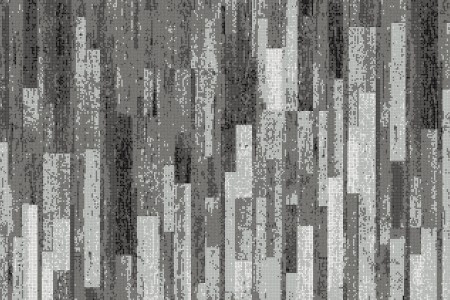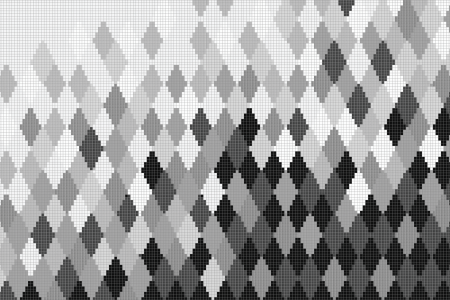Artaic Collaborates with Local Non-profit Artists For Humanity to Create Mosaics that Support Boston’s Youth
Stark industrial scenes, high contrast abstract patterns and bold graffiti make up Artaic’s latest urban-inspired mosaic design collection, a partnership with Boston-based non-profit Artists for Humanity (AFH). As part of the initiative, AFH designers, all Boston-area residents under the age of 18, created a diverse assortment of mosaics that draw from the convergence of nature, construction, street art, and the unique experiences that Boston’s low-income youth experience daily.
Artaic is all about bringing creative insights into the interior design and architecture space. We are very excited about this partnership with AFH and believe that this collection shares a unique perspective that is like nothing else out there because of how it was derived. -Paul Reiss, cofounder & creative director of Artaic

Orange contemporary Abstract Mosaic Tile Pattern by Artaic
AFH’s mission is to bridge economic, racial and social divisions by providing under-resourced youth with the tools for self-sufficiency through paid employment in the arts. As an innovative Boston-based mosaic design and fabrication company, Artaic saw a unique opportunity to assist AFH in its mission. With assistance from a Mass Ventures START grant, Artaic trained AFH youth on Artaic’s Tessera software and commissioned a collection of one-of-a-kind mosaic designs. AFH youth toured Artaic’s studio where they manufactured all of their mosaics to experience first-hand the blend of art and technology. Utilizing their new mosaic software skills, they transformed original artwork, including paintings, sketches, mixed media, and graphic designs, into mosaic murals.
This collaboration with Artaic showcases the powerful combination of technology and art. Further, it empowers teens to express themselves creatively drawing from day-to-day experiences, while also opening up doors for them that could lead to self-sufficiency through the arts. -Susan Rodgerson, executive/artistic director for Artists For Humanity

(L) The finished design.” width=”640″ height=”320″ /> (R) Kelsey, one of the AFH artists, working on Tessera.
(L) The finished design.
Currently, 83 percent of AFH’s youth participants are from low or very low income homes and 44 percent use their wages to support their families. Proceeds from any of the designs sold from the collection will support Artists for Humanity to continue its work transforming the lives of Boston’s urban youth. “Sharing the software and touring our facility, I was able to see teens’ eyes light up with realization that there is actually potential to make a business and earn money through creating unique art,” added Reiss. “I hope this helps to give kids energy and motivation to pursue their passions.”

Gary standing in front of one of his designs.



















